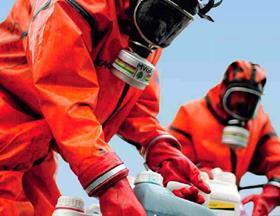
The European Crop Protection Organisation (ECPA) has labelled a report published this morning by Greenpeace Germany into pesticide producers a 'PR stunt' with few constructive points that would aid the pesticide debate in Europe.
The lobby group's report, entitled The Dirty Portfolios of the Pesticides Industry, ranks the world's five leading suppliers crop protection products – BASF, Bayer Crop Science, Dow AgroScience, Monsanto and Syngenta – in order of the alleged severity of their products' impact on the environment and apparent risk towards human health.
Proposed new legislation regarding the use of pesticides on agricultural products sold in the European Union is currently being considered by the European Council of Ministers, with a decision about whether or not to accept the proposals – put forward by the European Parliament – due at the end of this month. The legislation, which according to the ECPA will see around 80 per cent of all pesticides banned under EU law, would be introduced at the earliest next year.
Greenpeace's report, clearly intended to provoke debate and encourage a hardline approach from lawmakers in Brussels, has been met with extreme criticism from those such as the ECPA who favour a more integrated, gradual approach to banning pesticides in order to safeguard farmers and producers who they say rely on such substances for their livelihoods.
'This PR stunt does not contribute to an informed debate on pesticides, which is quite clearly what is needed now,' said Friedhelm Schmider, ECPA director general. 'At a time when we're facing a global food crisis, farmers need our products to protect their crops in order to produce high quality, affordable food.'
He added that all pesticides are thoroughly checked and approved based on strict safety criteria, with the long-term aim being to continue developing better products for the global market. 'Populist actions do nothing for safety and we ask for a sensible discussion which is based on reality, not popular perception,' he said.
However, Manfred Krautter of Greenpeace Germany defend the new report. 'Our rankings shows how toxic the businesses of leading agrochemical companies still are,' he said. 'In order to protect our health and to keep the loss of animal and plant species under control, the politicians must now make EU pesticide laws tougher.'
Meanwhile, the Soil Association has questioned the financial viability of using artificial fertilisers as the price of oil and gas continues to rise, claiming that chemical fertiliser costs could hit €634 per tonne by the end of 2008.
Robin Maynard, campaigns director at the Soil Association, said that the European agricultural industry's dependency on artificial fertilisers needs to be curbed, as it is environmentally and economically unstable. 'Farmers here in the UK and in developing countries would do better for themselves and the planet by shifting to sustainable organic farming that builds fertility using the sun’s energy and nature’s own fertiliser factory, clover,' he said.



